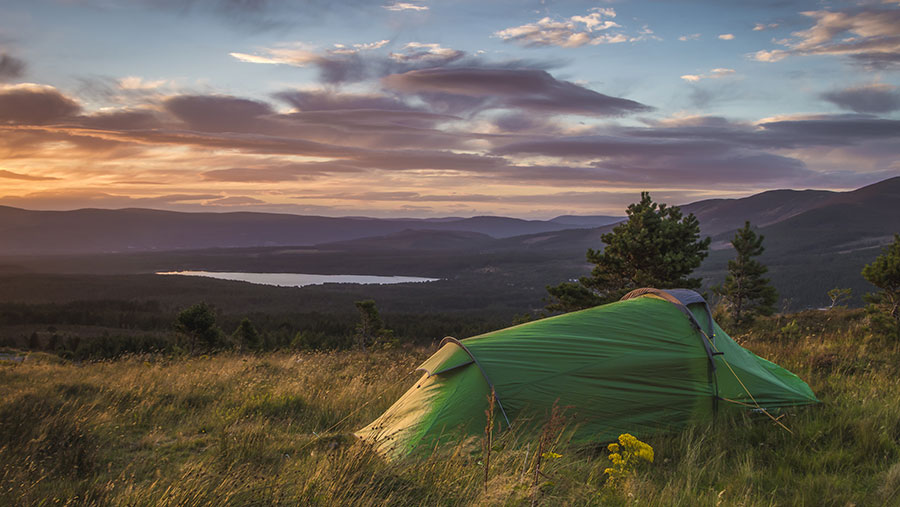Wild camping debate in Wales escalates with rise in visitors
 © Aspen/Adobe Stock
© Aspen/Adobe Stock Farmers must have the right to decide if wild camping is allowed on their land, says CLA Cymru, as campaigners in England and Wales pursue land access legislation similar to that in place in Scotland.
The debate on wild camping has been stoked by the increase in people holidaying in the UK this summer because of Covid-19 travel restrictions.
Wild camping is illegal in England and Wales – except in parts of Dartmoor – which means authorities have powers to act against “fly-camping”.
See also: Campsite operators warned of need for flood plan
However, it is legal to camp on most unenclosed land in Scotland.
Charles de Winton, a rural surveyor at CLA Cymru, said permission to camp should rest solely with the landowner.
“It’s important to remember that most rural land in Wales is looked after and maintained by farmers,” he said.
“Here they may have vulnerable livestock and crops, and they play a vital part in bio-conservation and landscape care. This is their home and livelihood.”
But Mr de Winton acknowledged that responsible wild camping could be accommodated on Welsh land where it has the permission of the landowners and where it is “safe for visitors, livestock, crops and wildlife”.
Staycation summer
“In this so-called staycation summer, landowners are pleased to be welcoming more visitors to the Welsh countryside,” he said.
But as visitor numbers have increased, so too have incidents of anti-social behaviour and abuse of the countryside, he added.
“Farms and rural businesses are vulnerable to damage by fire, contamination by human or dog excrement, livestock attack, litter and fly-tipping.”
The Countryside Code was updated earlier this year and pressure is being put on governments to include this within school curriculums.
